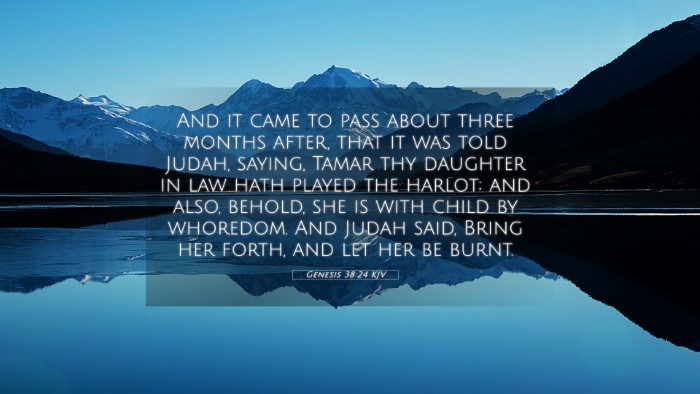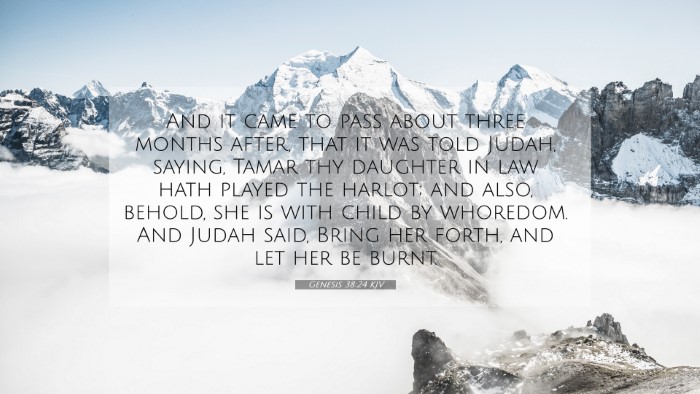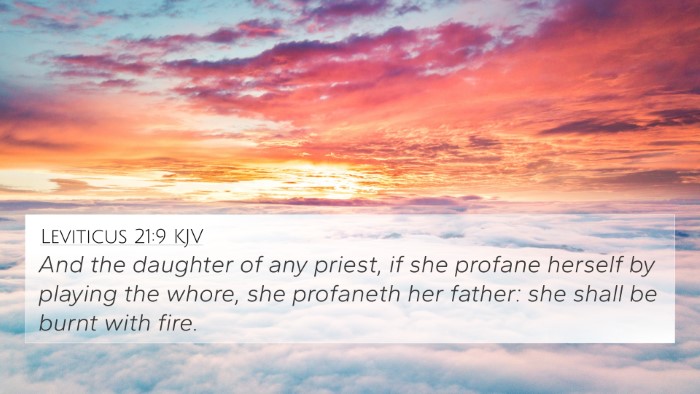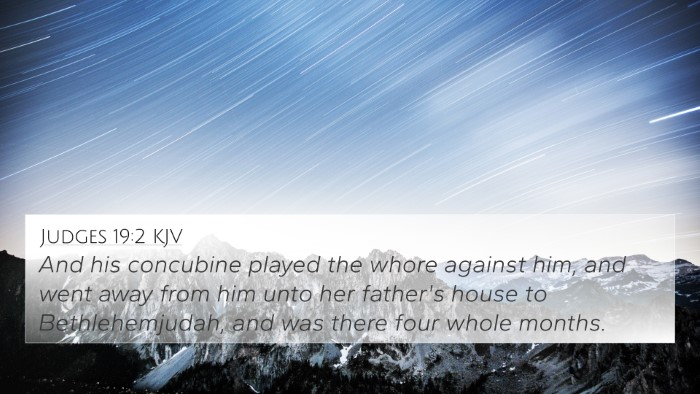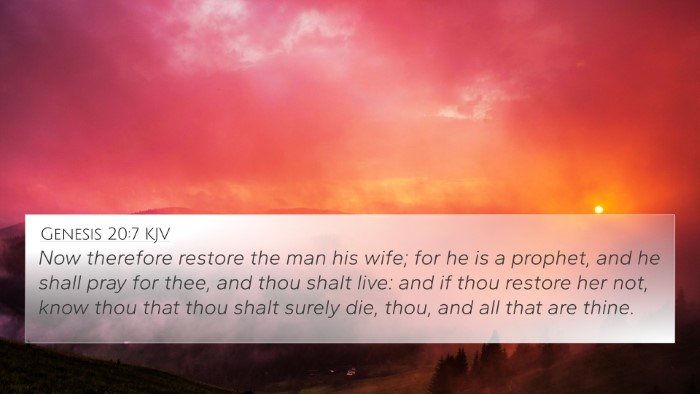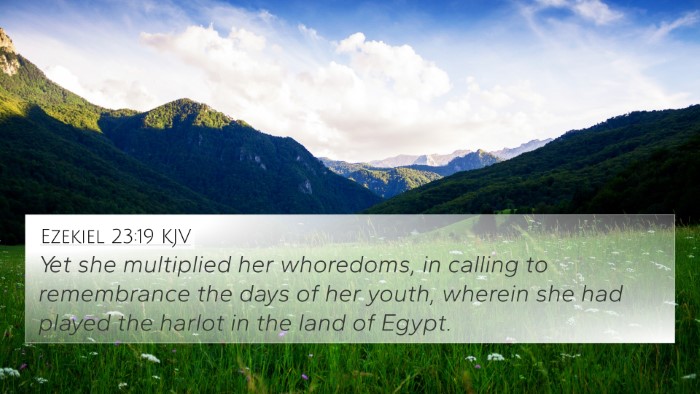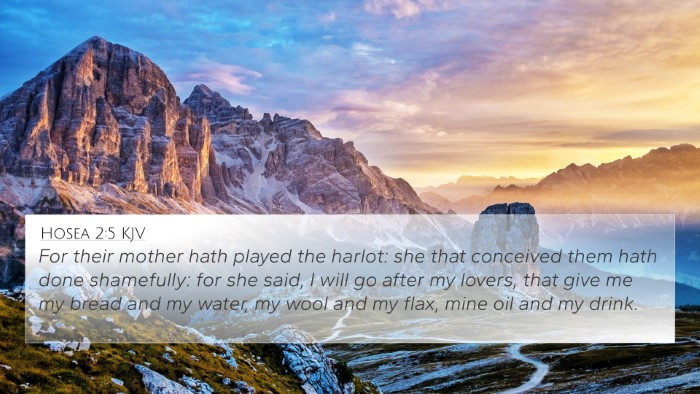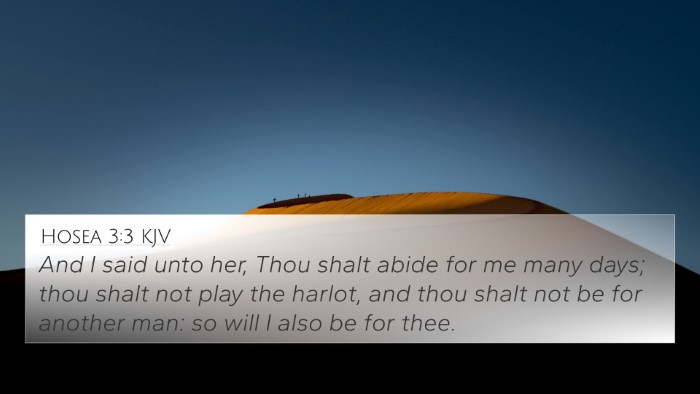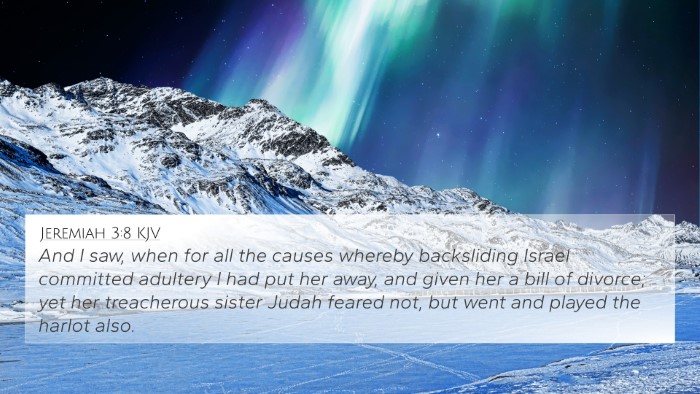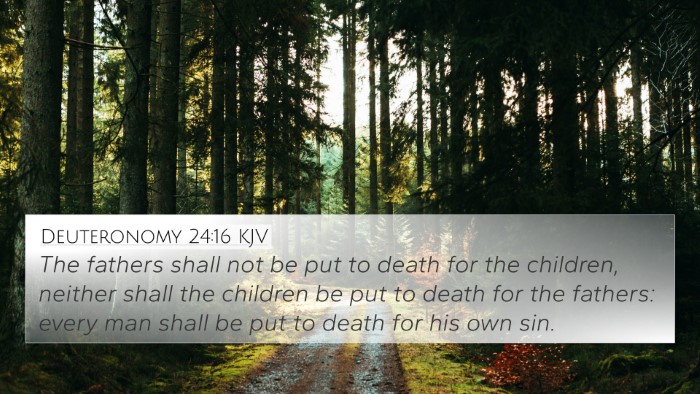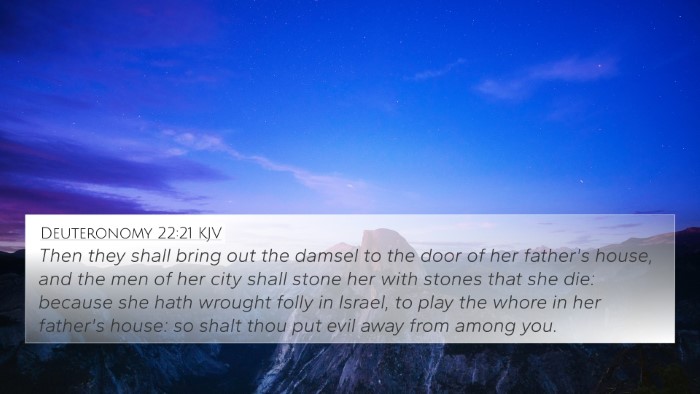Understanding Genesis 38:24
Genesis 38:24 recounts the story of Judah, who, upon hearing that his daughter-in-law Tamar is pregnant, orders her to be brought out and burned. This moment portrays a complex interplay of justice, accountability, and the harsh realities surrounding sexual morality in the biblical narrative.
Contextual Background
This chapter introduces significant themes related to family dynamics, societal norms, and the consequences of actions within the Biblical framework. Judah’s reaction can be seen as both a reflection of his character and the legal customs of the time.
Bible Verse Cross-References
- Deuteronomy 22:23-24 - These verses outline the consequences for premarital relations and can be seen as reflective of the societal laws that likely influenced Judah's actions.
- Leviticus 20:10 - Discusses the penalties for adultery, which can shed light on the severity of Judah's judgment towards Tamar.
- Matthew 1:3 - Highlights Tamar’s inclusion in the genealogy of Jesus, indicating her important role despite her circumstances.
- Genesis 38:26 - Provides a resolution to the conflict when Judah acknowledges Tamar's righteousness compared to his own.
- 2 Samuel 13:1-19 - Discusses themes of sexual immorality within families and how the fallout disrupts relationships, paralleling the issues in Judah's family.
- Romans 3:23 - Explores the concept of sin universally, hinting at the human propensity for judgement, as displayed by Judah.
- Proverbs 21:2 - Reflects on the thoughts of man being right in his own eyes, which may parallel Judah's original response to Tamar's perceived sin.
Insights from Commentaries
According to Matthew Henry, this verse signifies the harshness of human judgment based on societal standards. He notes that Judah's decision to condemn Tamar rests on his misunderstanding of justice and grace. Henry emphasizes the stark contrast between the legal implications of Judah's actions and the mercy ultimately displayed later in the narrative.
Albert Barnes provides additional clarity, indicating that Judah’s response was typical of patriarchal societies where women were often scapegoats for moral failings. He underscores the narrative's focus on human imperfection and the complexities involved in the perception of immorality.
Adam Clarke comments on the infamy of Tamar's situation yet recognizes it as part of the divine plan to fulfill God’s promise to Abraham and Jacob. Clarke emphasizes the length of grace, showing how both Judah and Tamar played critical roles in the Messianic lineage, regardless of their societal failings.
Thematic Connections
This verse invites deep reflection on themes of grace, judgment, family loyalty, and moral integrity. It acts as a catalyst for exploring how actions taken in haste can lead to severe consequences, further connecting to various biblical motifs regarding sin and redemption.
Cross-Referencing Biblical Texts
The ability to navigate through various texts, such as those listed, not only assists in understanding Genesis 38:24 but also enriches the broader narrative within the Bible. Tools for Bible cross-referencing allow believers and scholars to explore how similar themes and moral lessons reverberate throughout Scripture.
Conclusion
Genesis 38:24 serves as a profound reminder of the complexities of human behavior within the biblical narrative. By examining the verse through various perspectives and cross-referencing with other scriptures, we gain deeper insight into the text and its application to our lives today.
Further Exploration
For those interested in deeper study, it is advisable to utilize resources such as Bible concordances and cross-reference guides to explore themes related to justice, mercy, and redemption throughout Scripture.

